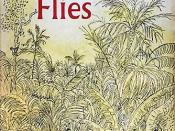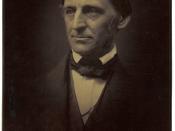Brought up with positive influences and back up plans to fall to when things go wrong, most people naturally conform to societal rules and modern ways of living. There are arguably few that rebel, but our civilization has built rules to deal with even these few, in order to make them obey. But without the nagging voices of our upbringings, what is our natural character? Would the impulse to live by rules and follow the moral commands we are taught to value be our original thought composition? Or is it likely the desire to act violently in order to gratify immediate desires would overpower these morals? Two completely opposite forms of government, however both common characteristics that humans live by. "Lord of the Flies" demonstrates these extremes by forcing young schoolboys to separate to their natural extremes, while staying connected by the boundaries of an island.
When boys become stranded on an island, a leader is surprisingly an immediate priority.
The older boys take the initiative to look after the young boys and feel their responsibility to keep track of them while acting as the parental figure they have all momentarily lost. They follow political order as demonstrated in ancient and modern days by holding a vote and electing Ralph as a prioritized, focused, and ambitious leader. For the first little while on the island, order is maintained, but when Jack, Ralph's challenging leader arises, two political forms are clearly divided. While Ralph's goals consist of building fire, shelter, and food, Jack's opinion is more casual. Jack soon develops a tribe of his own that consists of hunters who lust over killing and savage games. Jack's democratic party soon holds high majority and continues to gain members because of his persuasive and carefree objectives. It's...


